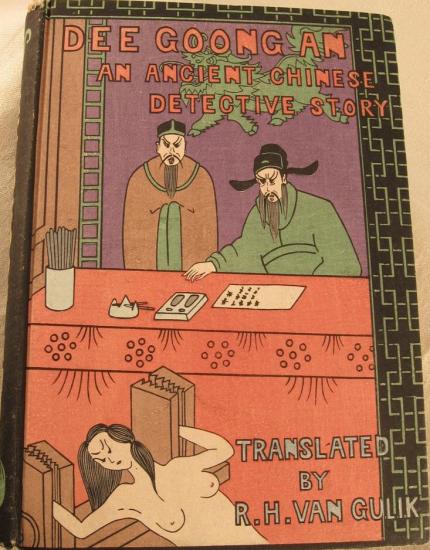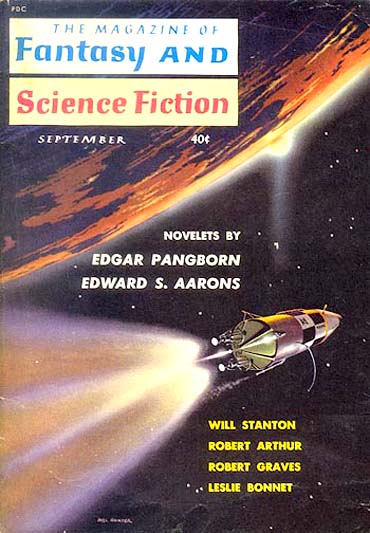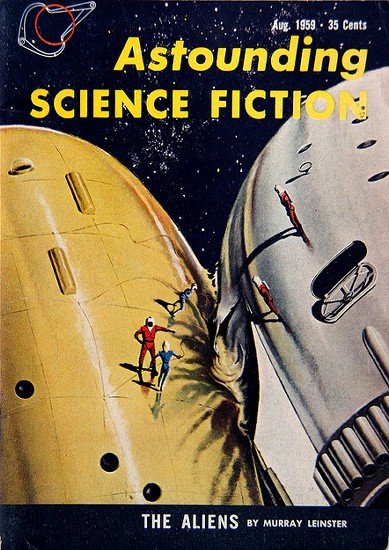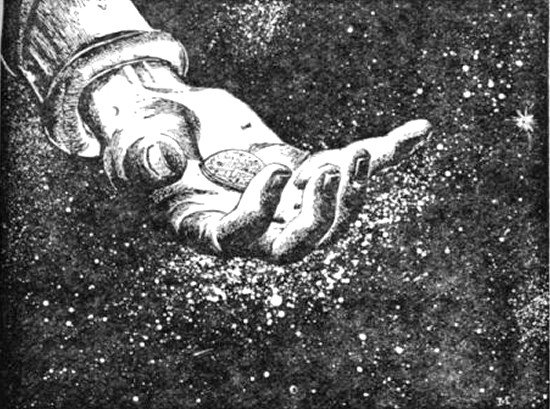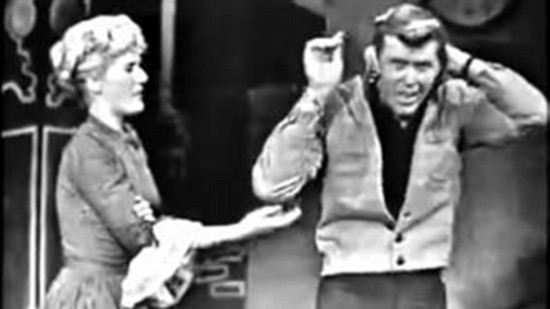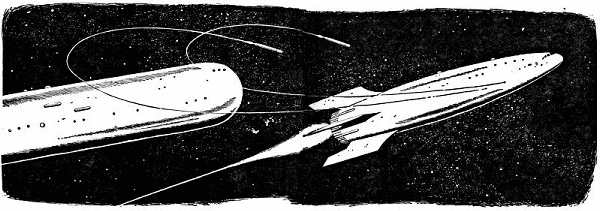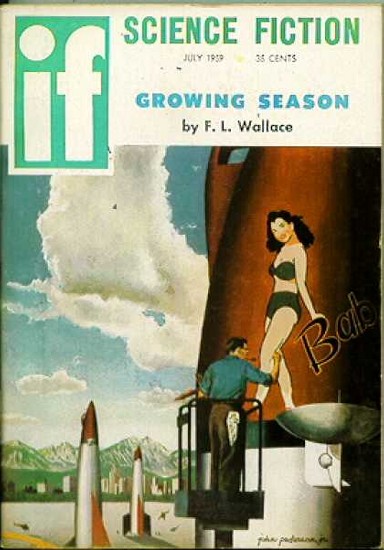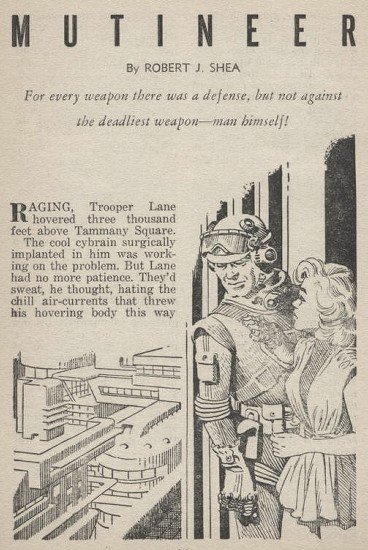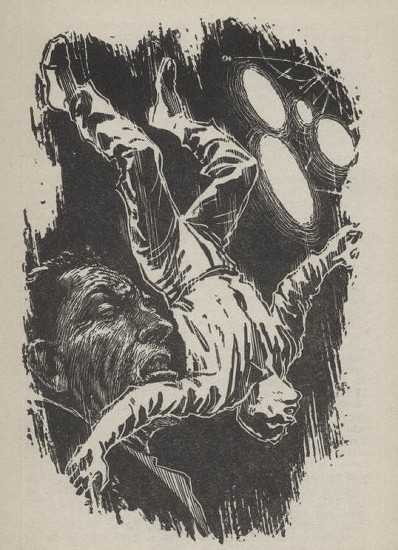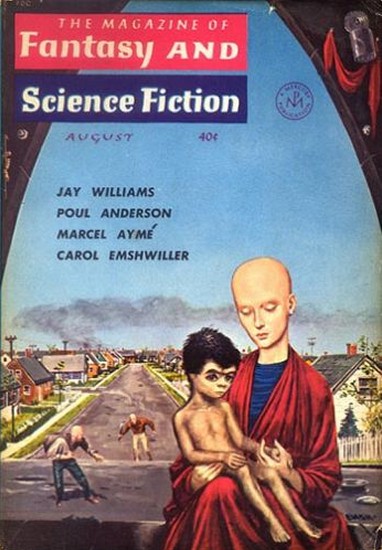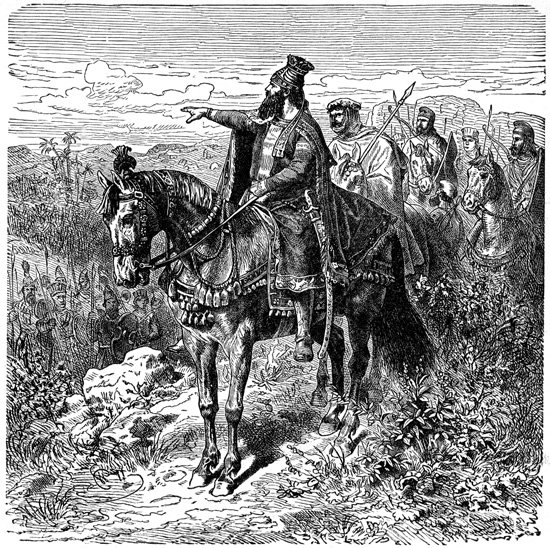Last year, Galaxy moved to a bi-monthly format. Coincident with that was a drop in writer rates per word. I had had concerns that there would be a corresponding drop in quality. Thankfully, this year's issues have been of consistently high quality.
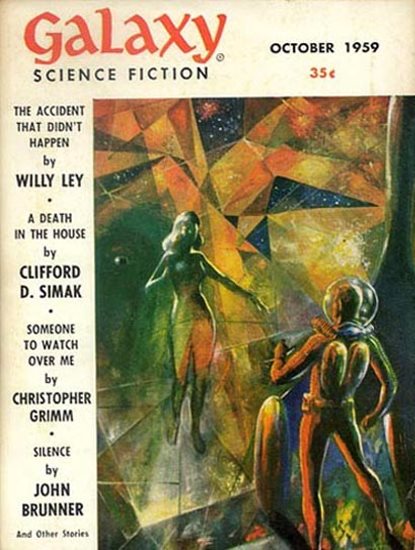
All pictures by Dick Francis
Moreover, Galaxy really isn't a bi-monthly anymore. Inside the front cover of this month's (October) issue is a full-page advertisement for IF magazine, which is now owned by the same publishers, has the same editors, and appears in Galaxy's off months. Quacks like a duck; sounds as if Galaxy is a monthly, and every other month, is an oversized issue, to boot.
One of the reasons Galaxy can still fill its pages is that both the editor (H.L.Gold) and his brother (Floyd Gold, known as Floyd Gale) are both fair writers in their own right. Their opening novella, co-written under the pseudonym "Christopher Grimm," is called Someone to Watch Over Me, and it is almost excellent.
Len Mattern is a space merchant, seasoned from decades of meandering from star to star in a tramp freighter. His obsession is the high-class prostitute, Lyddy, and Len has spent his entire adult life amassing sufficient wealth to wed her, which he does at the story's beginning. The rest of the tale is told mostly in flashback. In this universe, traversing hyperspace has the most unsettling effect on travelers: they become unnatural beasts with tentacles and extra eyes. All but the most hardened spacer must knock her/himself out for the journey or suffer profound psychological trauma.
Mattern, however, has discovered that hyperspace is a destination, as well as a conduit, and it is inhabited. Moreover, some items that are useless in our dimension become highly valuable in the other, and vice versa. Mattern becomes the first to establish trade relations with the horrible but peaceful aliens. One of them even accompanies Mattern for the next decade of highly lucrative commerce, becoming a combination best-friend and perpetual shadow.
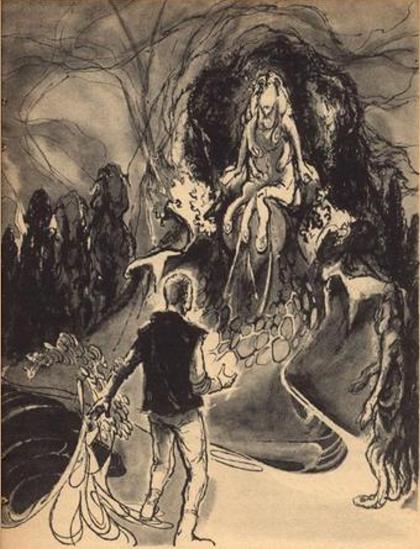
If the story has any flaw, it's a sort of dismissive view of women, though, to be fair, one of the best characters is the alien queen, at once beautiful and terrible. My favorite line: "I see no reason…why a male should be deemed incapable of ruling, provided he is under careful supervision."
Worthwhile reading. I'm glad the Gold brothers are writing as well as editing.
E.C. Tubb's Last of the Morticians is short and unremarkable, about two undertakers weathering a lack of business resulting from the recent advent of immortality. Their solution: bury something other than people!
Willy Ley's article this month is a little scattered, but the latter two thirds (he has split the column in three this time) is quite good. And bad Ley is still fine reading. I especially liked his piece on "Zilphion," a now-extinct Graeco-Roman spice plant.
Last for today is the very good "A Death in the House," by Cliff Simak. Simak is a very uneven writer, I have found, but when he's on top of his game, he is a real stand-out. Death is reminiscent in tone and subject of Dickson's E Gubling Dow from May's Satellite, but far better in in execution. In this tale, Old Mose (whom, until I saw the illustration, I pictured as Black), is a lonely farmer whose heart is big enough to rescue a rather repulsive alien that he finds mortally wounded on his property. It's really quite a beautiful story with a rather happy ending. In stark contrast to Garrett, Simak actually kept me up until I'd finished!
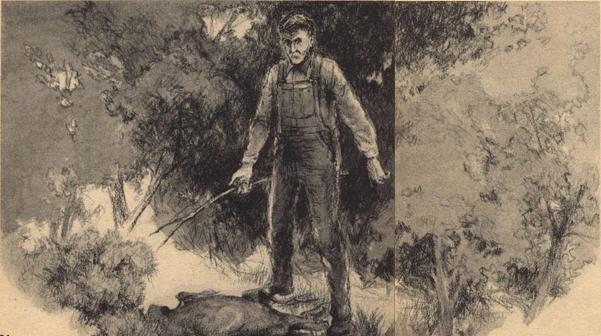
From what I can tell, the rest of the magazine is excellent, too. This issue may well earn the coveted four star rating. Only Galaxy has managed this feat of consistent quality in 1959, though excellent stories have appeared in other magazines, of course.
Stay tuned, and thanks for reading!
(Confused? Click here for an explanation as to what's really going on)
This entry was originally posted at Dreamwidth, where it has comments. Please comment here or there.


